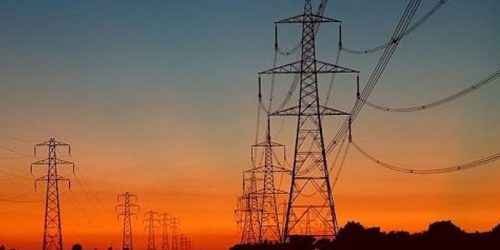KARACHI:
The government has achieved a major breakthrough by reducing the price of electricity for end-consumers as power producers have agreed in principle to limit their profit margins and will no more be entitled to capacity payments in case power generation is not needed in future.
In case the independent power producers (IPPs) earn a higher profit than the one agreed with the government, then they will share the maximum proportion of the additional profit with the state.
The government has ended the award of profit in US dollars to the local investors in the IPPs.
The continued depreciation of the rupee against the US dollar was making the IPPs’ power tariff expensive despite the fact that the profit rate remained fixed at 15% in foreign currency.
Foreign investors will, however, continue to get profit in foreign currency but at a reduced rate of 12%.
The government has negotiated new business terms and amended some of the rules with the consent of the IPPs.
It has signed a memorandum of understanding (MoU) with the IPPs set up under the 2002 power policy and is about to do the same with the IPPs established under other power policies, it has been learnt.
An IPP, whose shares are publicly available for trading at the Pakistan Stock Exchange (PSX), has shared contents of the MoU inked with the government.
“There will be no future US dollar indexation,” Saif Power Company Secretary Waseemullah said in the material information given to the PSX.
“For foreign equity investment registered with the State Bank of Pakistan (SBP), the total return on equity (including ROE during construction) shall be changed to 12% per annum,” he said.
“For local investors, the total ROE shall be changed to 17% per annum in Pakistani rupee…at the rupee-dollar exchange rate of 148 per US dollar.”
The US dollar was available at around Rs58 in 2002. It has now shot up to Rs168 in the inter-bank market, according to the central bank.
“In order to assess if the company has made any excess profit, the reconciled numbers between the committee (the government negotiation committee which signed the MoU) and the company shall be submitted to the National Electric Power Regulatory Authority (Nepra), who shall hear and decide this matter in accordance with the 2002 power policy, tariff determination and power purchase agreement (PPA),” Waseemullah said.
As per reconciliation of figures done informally with the committee for negotiations, the company has no excess profit, he said.
“Any positive differential between revenues and costs of fuel and operation and maintenance (O&M)….will be shared 60-40% in favour of power purchaser (government),” he said.
The IPPs have agreed to reduce the late payment surcharges to Kibor (Karachi Inter-bank Offered Rate) plus 2% in case the government pays for power purchase within 60 days after the due date. The surcharges, otherwise, shall revert to Kibor plus 4.5% as per the PPA rules, he said.
Moreover, the capacity payment has remained a major reason for a continued surge in circular debt. At present, the government is bound to either purchase electricity from the IPPs or pay them capacity charges in case their power is not required by the system (national grid). This is called “Take or Pay” payment mechanism.
The government has encouraged the IPPs to change this payment mechanism to “Take and Pay”, meaning the government would make payment for power purchases only, otherwise not.
This mechanism, however, would come into effect when the IPPs have more power purchasers (other than the government) in the future. “As per the MoU, when the competitive trading arrangement is implemented and becomes completely operational, the company shall move to ‘Take and Pay’ as per the terms defined in the generation licence,” the company secretary said in the communiqué.
The IPPs, however, have the condition of implementing the MoU with the receipt of power purchase dues amounting to around Rs600 billion at present, it has been learnt.
“Payment of receivables of the IPPs is an essential condition of the MoU,” he said. “The government of Pakistan along with the power purchaser shall arrange for payment of overdue amounts and the mechanism of payments. The power purchaser shall also ensure adherence to its contractual obligations.”
Terms of the MoU are subject to the approval of Nepra, federal cabinet and board of directors of the company and other necessary corporate approvals and will be followed by legal documentation to reflect the amendments needed in tariff after which relevant agreements will be signed.
“Validity of the MoU is six months and shall stand terminated on signing of the agreement including the agreement on payment of receivables and obtaining legality,” Waseemullah said.





